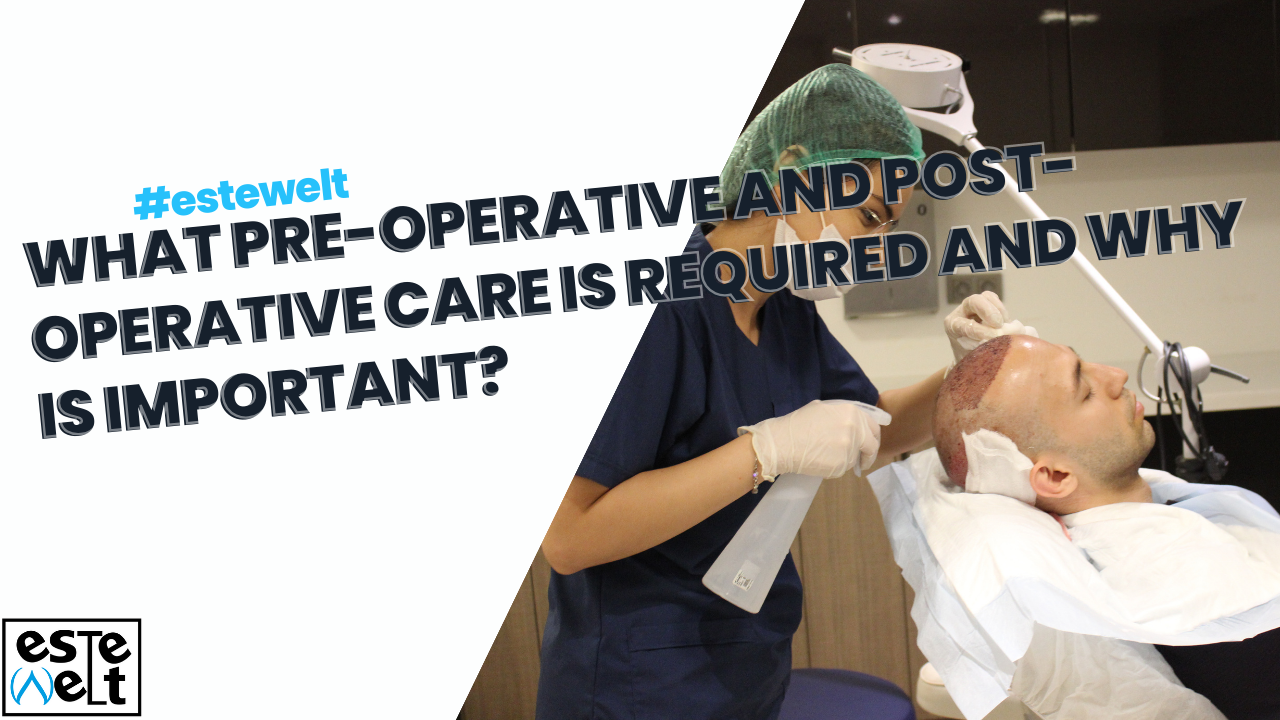"Faces Go On Smiling"
en

Pre-operative and post-operative care are crucial aspects of the hair transplant process. Proper care before and after the procedure can significantly impact the success of the transplant, the healing process, and the final results. Here's a breakdown of what's typically involved:
Pre-operative Care:
Consultation and Assessment: Prior to the surgery, you'll have a consultation with the surgeon. They will evaluate your hair loss pattern, overall health, and determine if you're a suitable candidate for a hair transplant.
Medical History Review: You'll need to provide your complete medical history, including any medications, supplements, or medical conditions you have. Certain medications and medical conditions can affect the surgery and recovery process.
Blood Tests: Some clinics may require blood tests to assess your overall health and ensure you're fit for the procedure.
Avoid Blood-Thinning Medications: If you're on medications that thin the blood (such as aspirin or certain anti-inflammatory drugs), your surgeon may ask you to stop taking them a few days before the surgery to reduce the risk of excessive bleeding.
Quit Smoking: If you're a smoker, your surgeon might recommend quitting before the surgery, as smoking can negatively impact the healing process.
Stay Hydrated and Eat Nutritiously: A balanced diet and proper hydration can help promote healing and provide the body with the necessary nutrients for recovery.
Post-operative Care:
Follow Post-Op Instructions: Your surgeon will provide detailed instructions for the immediate post-operative period. This can include guidance on activities to avoid, how to care for the grafts, and any medications or topical treatments to use.
Protect the Transplanted Area: It's important to avoid touching, scratching, or picking at the transplanted area to prevent dislodging the grafts. You might be advised to wear a protective hat to shield the area from the sun and dust.
Gentle Cleaning: You'll likely be instructed on how to gently clean the transplanted area to prevent infection. Special shampoos or cleansers may be recommended.
Avoid Strenuous Activities: Physical exertion, heavy lifting, and strenuous exercises should be avoided for a certain period as they can increase blood pressure and affect the healing process.
Medications: You might be prescribed antibiotics to prevent infection and pain medications to manage any discomfort.
Sleeping Position: You may need to sleep in a specific position to prevent putting pressure on the transplanted area.
Follow-Up Appointments: Regular follow-up appointments with your surgeon will be scheduled to monitor your healing progress and address any concerns.
Why Pre- and Postoperative Care is Important
Optimal Results: Proper pre-operative care ensures that you are in good health for surgery, increasing the chances of successful graft survival and hair growth.
Faster Recovery: Post-operative care helps prevent infections and complications, allowing the transplanted area to heal faster and smoother.
Graft Survival: Postoperative care directly affects the survival of transplanted grafts. Proper care minimizes the risk of graft dislodgement.
Reduced Scarring: Following postoperative instructions can lead to minimal scarring and better cosmetic results.
Patient Comfort: Proper care can minimize discomfort, pain and itching during the healing process.
Remember, each individual and hair transplant procedure is unique. Always follow the specific instructions provided by a specialist for the best possible results.
